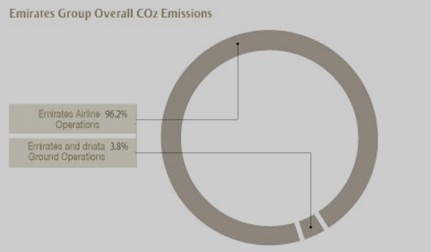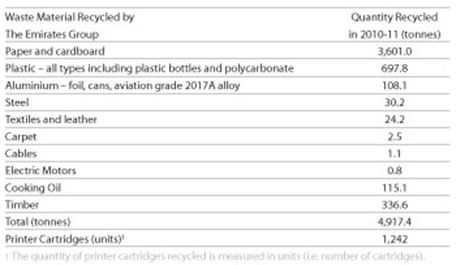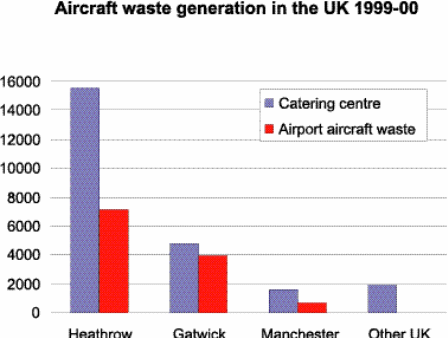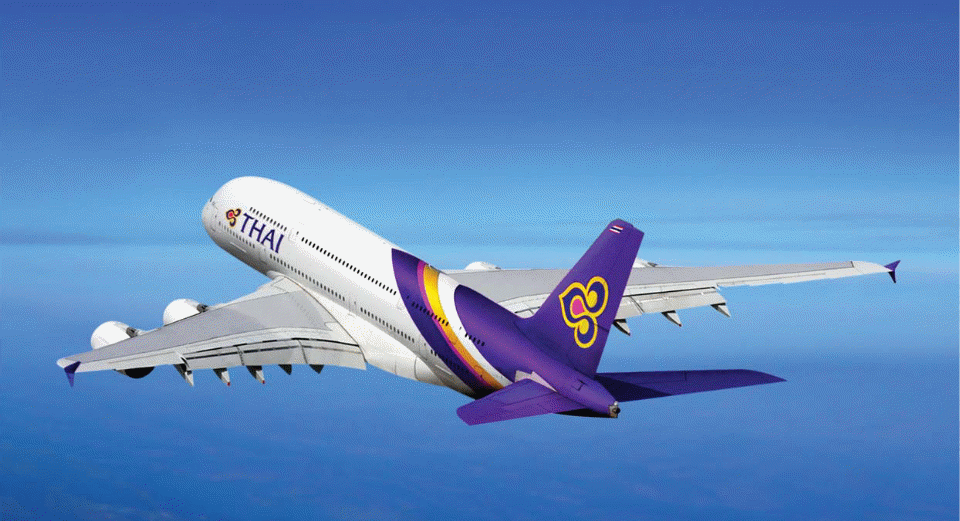Executive Summary
Sustainability is the concern for everyone who is concerned about the future success. Sustainability will enable the future generation to attain development and success. This will also ensure secure job opportunities and provide a platform for current development programs. The issue of sustainability is also found in the tourism industry.
In this case, the players in this industry are expected to engage in activities that have little or no impact on the environment. Such activities should allow for future employment of local people. Tourism is a major sector in the global economy.
The industry ranks as one of the largest industries in the world contributing a lot towards economic development. Therefore, this industry is a major concern since its fall can have a considerable effect on the world economy.
The airline transporters are the major contributors to the tourism industry. Tourism involves travelling across the globe, and planes are used for this purpose. Planes use fossil fuels as a source of energy and thus contribute to environmental pollution through carbon dioxide emissions. Notably, carbon dioxide is a greenhouse gas that is very harmful to the environment.
Therefore, airline companies should take responsibility for the pollution caused by the aircraft. They should establish programs whereby they will compensate for the pollution caused. This is possible through carbon offsetting programs. In addition, the companies can also engage in waste recycling projects.
This will help reduce the level of pollution by the waste products from companies. For waste that is not recyclable, they should develop ways of properly managing it to reduce its adverse effects.
Introduction
In the recent years, there have been efforts to engage in practices that have limited detrimental impact on the environment. Customers have been willing to spend significantly on practices and products that have limited damage on the environment. Similarly, there has been efforts to make the tourism and hospitality industry sustainable.
Sustainable tourism will make a very low negative impact on the environment and provide future employment opportunities for local residents. Sustainable tourism’s main objective is to make sure that local people enjoy a constructive relationship emanating from the developments in the tourism industry.
Tourism is one of the largest industries in the world. It brings a lot of income to the international community. Therefore, it plays a major role in the economic development of many countries across the world. Sustainable tourism is different from ecotourism.
However, tourism and environment are closely related. Tourism involves travelling across the world to visit tourist sites, and the major means of transport is by air. Various airlines are associated with the tourism and hospitality industry for transport purposes. They include Emirates Airlines, British Airlines and Thai Airways.
This paper focuses on the effectiveness of sustainable practices, plans, programs, and initiatives implemented by industry operators and organizations within the tourism and hospitality industry. The three airlines will form the case studies for this paper. The paper will provide a policy planning for a sustainable tourism and hospitality industry.
Emirates Airline
This airline is found in the United Arab Emirates. The airline is a subsidiary of the Emirates Group, and it is the largest airline operating in the Middle East. The airline is capable of operating as many as over 2500 flights in a week. It has terminals in over one hundred cities spread in over 70 countries across the world.

As one of the largest airlines in the world, Emirates Airlines is a major player in the tourism industry. Therefore, the airline company is critical in the establishment and development of a sustainable tourism and hospitality industry.
The airline has the capability to cause a share of the problems that affect sustainable development since aircraft use fuels that emit carbon to the environment. In addition, tourism is a people-oriented industry that can make a significant contribution in loss of cultural heritage in communities, as well as economic dependency.
Carbon
Emirates Airlines can make a great impact on the environment depending on the aircraft they fly and the way the aircraft are flown. It is for these reasons that the group has spent substantially investing in aircraft that have a low, negative impact on the environment. In fact, Emirates Airlines runs the quietest aircraft. In addition, their aircraft have the lowest emissions of carbon.
The group further tries to be as efficient as it can in order to ensure that it makes a significant contribution in reducing its carbon footprint. This will further reduce its impact on the global environment. The company uses forms of energy that are efficient and have less damage to the environment.
The company released an environmental report in the year 2010-2011. In this report, the company acknowledged resource preservation as one of the major challenges that the company was going to face in its bid to establish a sustainable development. However, the sustainable development is not likely to be successful unless the general society adopts the principles of energy conservation as part of their core values.

Waste
One of the major ways to reduce environmental pollution is to manage waste effectively. Waste can be managed through recycling. This will ensure sustainable development. The tourism and hospitality industry has to be sustainable to ensure its future success and development. Therefore, airlines should be active in ensuring sustainability.
Emirates Airlines has been the leading airline in matters of sustainable tourism and hospitality industry. The group has initiated programs whereby it recycles waste products. The programs target diverse range of waste products that are produced in the company. In fact, in the financial year 2010-11, there was close to 5000 tons of waste, which were recycled by the Emirates Group in Dubai.
The major objective for these recycling efforts is to pave the way for future initiatives. The waste materials recycled by the group include plastic bottles, printer cartridges, aluminium drink cans, paper, and cardboard, as well as steel cans.
The recycling is carried out at the Emirates Group Headquarters in Dubai. In the last financial year, the group collected over three hundred tonnes of recyclable materials. The waste materials were collected from the group’s office buildings.
Carbon Offsetting
The company has policies that have been laid down to help in the conservation of ground and air environment. The company’s environmental policy is:
As the senior managers of the Emirates Group, we are committed at ensuring that environmental responsibility underpins our core values as an organization.
Our vision is to make the group an environmental leader in the aviation and in the travel industries. Our goals are to make sustainability and eco-efficiency the cornerstones of all group operations – both in the air and on the ground.
The company has been able to reduce its environmental degradation through carbon emission significantly by modifying its aircraft to consume little fuel. In this case, they emit limited, carbon dioxide. The company’s aircraft are the most efficient, and they use the latest technology to speed up transportation. This reduces the flight time and hence the amount of carbon dioxide emitted.

British Airline
This is regarded as the main airline serving the United Kingdom. It is based in Waterside, which is located close to the airline’s main hub at London Heathrow Airport. Compared with other airlines in the United Kingdom, it has the largest fleet size, the biggest number of international flights, and the most international destinations. The airline is at number two behind Easy Jet concerning the number of passengers.

Carbon
British Airways through its aircraft contribute to the carbon emission. This has been an issue of major concern throughout the world. For this reason, the actions that the company takes to deal with the situation will be of major importance in ensuring a sustainable tourism and hospitality industry.
According to a report by British Airways in the year 2008/09, it was reported that over 50,000 tons of carbon dioxide had been offset by the airline. The airline set a target to reduce its carbon emission by half before the year 2050. For it to be successful in this bid, it requires to invest heavily in the development of sustainable bio jet fuel, technology, and emissions reduction measures that are cost effective.
Waste
The company is aiming at reducing the amount of waste disposed to landfill. At the same time, it has also engaged in attempts to increase the level of recycling used materials. In case the waste materials are not recyclable, the company has strategies whereby it manages the waste in a responsible manner. The strategy has been gaining success since it was started.
In fact, the company recycled 35% of dry waste at Heathrow in the year 2008. This was an increase from the previous year’s 30%. The company has continued to increase its recycling centers to be in a position to handle a wide range of waste materials and the increasing amount of waste. The initiatives have contributed to the fall of the amount of waste in Heathrow. The following group shows aircraft generation in the United Kingdom.

Carbon Offsetting
The company is aiming to create effective carbon trading markets as one of the ways to reduce emissions. It has developed a strategy known as the “British Airways’ Unique One Destination Carbon Fund.” This program aims to take a certain amount of money from customers and use it to support activities aimed at reducing carbon emissions and projects for generating renewable energy.
Thai Airline
This is the largest airline operating in Thailand with its headquarters based in Bangkok. Its operations are primarily based at the Suvarnabhumi Airport.

Thai Airline Carbon Offset Program
The company is a major contributor to carbon emissions through its aircraft. Therefore, it is taking part in programs aimed at minimizing its impact on the environment. For this purpose, the company has adopted the IATA-administered carbon offset program.
In this program, the passengers are required to compensate for the emissions resulting from their travel. The money they contribute is directed towards programs managing the environment. Carbon offsetting is an important strategy used to reduce the effect.
Waste
Thai Airways has been on the front line in the development of a sustainable tourism and hospitality industry. Thus, the company has engaged in several programs meant to develop innovative ways of recycling waste materials.
Among the innovations is the recycling of vegetable oil, which is a by-product in the production of in-flight meals, to form useful fuel. The company also recycles waste food to form fertilizers. Further, it neutralizes and disposes chemical wastewater used in plane maintenance.
Recommendations
Carbon offsetting programs should be set by all the companies that carry out activities, which contribute to carbon emissions in an effort to compensate for the pollution caused. The companies should arrange to ensure that they get cash to be directed to the initiatives.
All airline companies should take responsibility for pollution caused through emission of carbon dioxide by their aircraft. In addition, companies should develop alternative sources of energy that have limited damage to the environment. They can also use technology to come up with aircrafts that emit less carbon dioxide.
Companies should also engage in waste recycling to reduce pollution. There are waste materials that can be recycled and put into other constructive uses. However, there are waste materials that cannot be recycled. Companies should develop strategies to manage such waste properly in order to reduce their effect on the environment.
Conclusion
The issue of environmental pollution is of major concern due to its effects on global warming. Carbon emission is a great concern given that it is the most common greenhouse gas with significant effects. The level of pollution has to be put under control to secure a sustainable development.
The various aircraft are major contributors of air pollution due to their carbon emissions. Aircraft use fossil fuels as a source of energy. Therefore, they should take the responsibility to control the situation. This will be important for maintaining sustainable tourism and hospitality industry in the future.
Bibliography
British Airways (a), One Destination Carbon Fund, 2012. Web.
British Airways (b), Flight Information, British Airways, 2012. Web.
Emirates (a). Carbon Offsetting: Our Position, 2012. Web.
Emirates (b). Recycling and Waste Management; Sustainability and Management, 2012. Web.
Emirates Airline. General Books, [S.l.]. 2010.
Graham, A., Aviation and Tourism: Implications for Leisure Travel, Ashgate, Aldershot, 2010.
International Conference on Sustainable Tourism, FD Pineda, and CA Brebbia. Sustainable Tourism IV, WIT, Southampton, 2010. Web.
Knowles, T., Dimitrios D., and Joudallah B. E., The Globalization of Tourism and Hospitality: A Strategic Perspective, Thomson, London, 2004.
Newton, V., British Airways – Towards Sustainability: British Airways, UK, 2000. Web.
Page, S., and Connell, J., Tourism: A Modern Synthesis, Thomson, London [u.a.], 2007.
Report: Dubai 2008, Oxford Business Group, [S.l.], 2008.
Thai, Carbon Offset. Thai Airways, 2012. Web.
The Emirates Group, Environmental Report 2010-2011, 2011. Web.